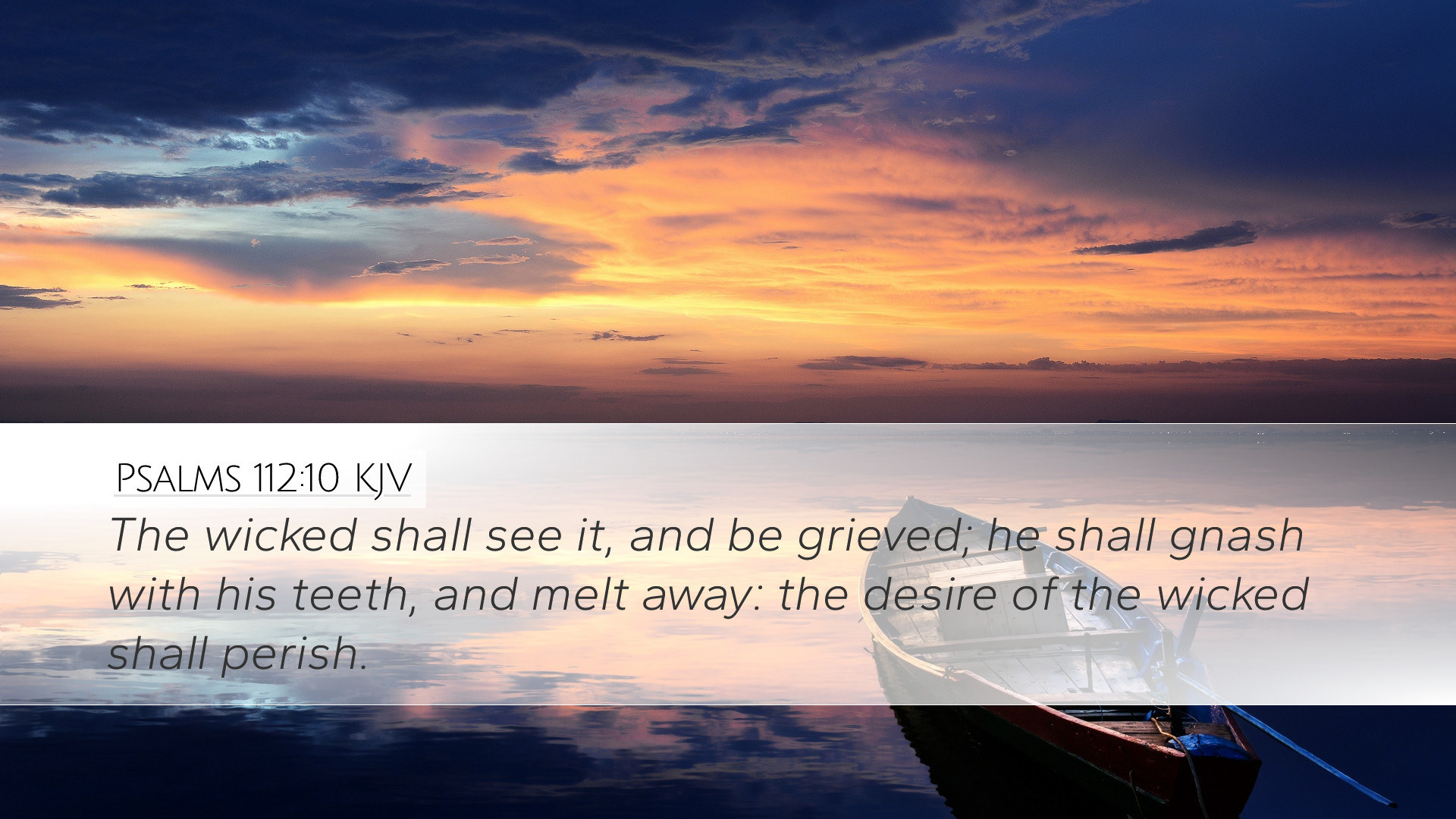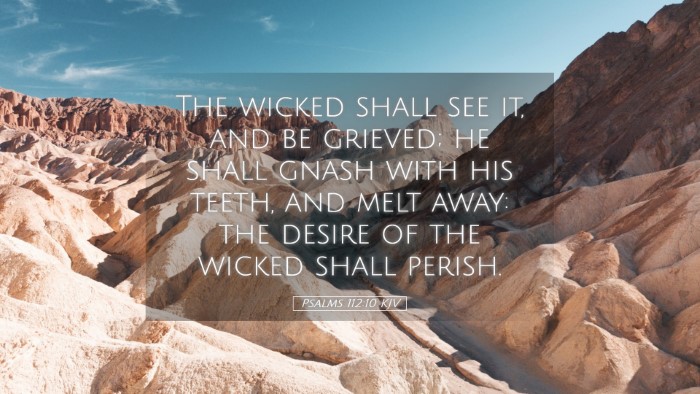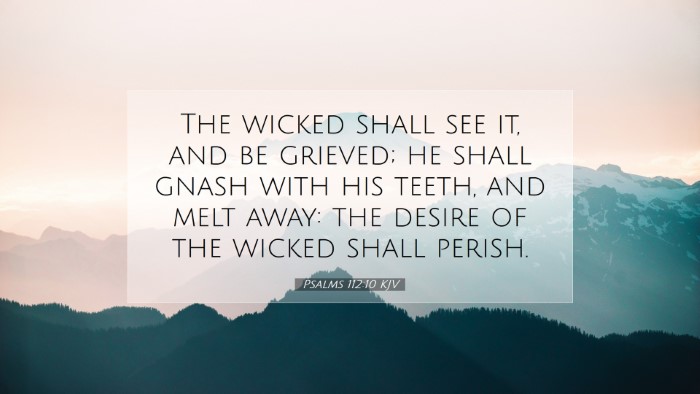Psalms 112:10 Commentary
Verse: "The wicked shall see it, and be grieved; he shall gnash with his teeth, and melt away: the desire of the wicked shall perish."
Overview
The verse Psalm 112:10 encapsulates a profound contrast between the fate of the righteous and the wicked. It provides insight into the emotional response of the wicked towards the prosperity of the righteous and highlights the ultimate futility of wicked desires. This commentary combines insights from renowned public domain sources, presenting a cohesive understanding of the text.
Insights from Matthew Henry
- The Grief of the Wicked: Matthew Henry notes that the sight of the righteous man, who walks in wisdom and fear of God, thriving and enjoying the blessings of life, brings about deep anguish in the heart of the wicked. Their suffering results from their own evil actions and lifestyles, which only lead to destruction.
- Gnashing of Teeth: The gnashing of teeth that Henry refers to is symbolic of intense frustration and rage. He emphasizes that this reaction is not merely a physical response but reflects a deeper spiritual agony, representing the failed ambitions and desires of the wicked who see their own fate contrasted against the faithful.
- The Perishing Desires: The desires of the wicked, according to Henry, will ultimately perish. They chase after fleeting pleasures and material gain, but such pursuits will fade, leaving them empty. This serves as a warning against living a life disconnected from righteousness and faith.
Insights from Albert Barnes
- The Reaction of the Wicked: Albert Barnes elaborates on the emotional turmoil of the wicked upon seeing the blessings bestowed upon the righteous. He emphasizes that this response stems from an inherent awareness of their own wickedness and the consequent judgment looming over them.
- Melt Away: Barnes interprets the phrase "melt away" as indicative of the complete dissolution of the wicked’s hopes and ambitions. He suggests that as they witness the triumph of righteousness, their confidence will evaporate, leaving them desolate and hopeless.
- Implication of Desire: Barnes points out that the desires of the wicked are not only futile but also insatiable. The yearning for power, wealth, and security will ultimately lead to their downfall. The fulfillment of such desires only leads to disappointment, reinforcing the moral order established by God.
Insights from Adam Clarke
- Understanding Wickedness: Adam Clarke focuses on the nature of wickedness itself. He posits that the wicked are aware of the righteousness of the just and realize that their lives are in opposition to divine commandments. This awareness breeds a deep-seated grief as they confront the truth.
- Symbolism of Teeth: Clarke explains that the imagery of gnashing teeth is rich with meaning. It symbolizes anger and despair but can also reflect a regret for wasted opportunities. Clarke calls attention to the fact that the wicked’s rage ultimately turns inward, leading them to a self-destructive path.
- Conclusion and Hope for the Righteous: Clarke concludes with a note of hope for the righteous. In their blessings and eternal reward, they serve as a testimony against the wicked. The contrast elucidates a divine justice that is both immediate and eschatological, establishing a significant framework for understanding human action and morality.
Theological Implications
This verse serves as a reminder for both scholars and laypeople of the inherent justice of God. The anguish of the wicked as they witness the blessings upon the righteous reinforces the understanding that the moral order of the universe ultimately favors those who live according to divine principles. Furthermore, it affirms the belief in a final resolution of good versus evil, where righteousness is rewarded and wickedness is punished.
Practical Applications
For pastors, students, and theologians, this passage encourages a deeper reflection on the character of God as just and fair. It calls them to preach hope for the righteous and caution for the wicked, underscoring the necessity of living in accordance with God's will. Additionally, it invites personal introspection regarding one's desires and motivations. Are they aligned with righteousness or do they give way to wickedness?
Conclusion
Psalms 112:10 articulates a vital truth within the broader narrative of Scripture: that the wicked will ultimately face the consequences of their choices. This commentary, drawn from revered public domain sources, provides a foundational understanding of the text suitable for scholars and laypeople alike, reminding us of the eternal principles at play in the human experience.


